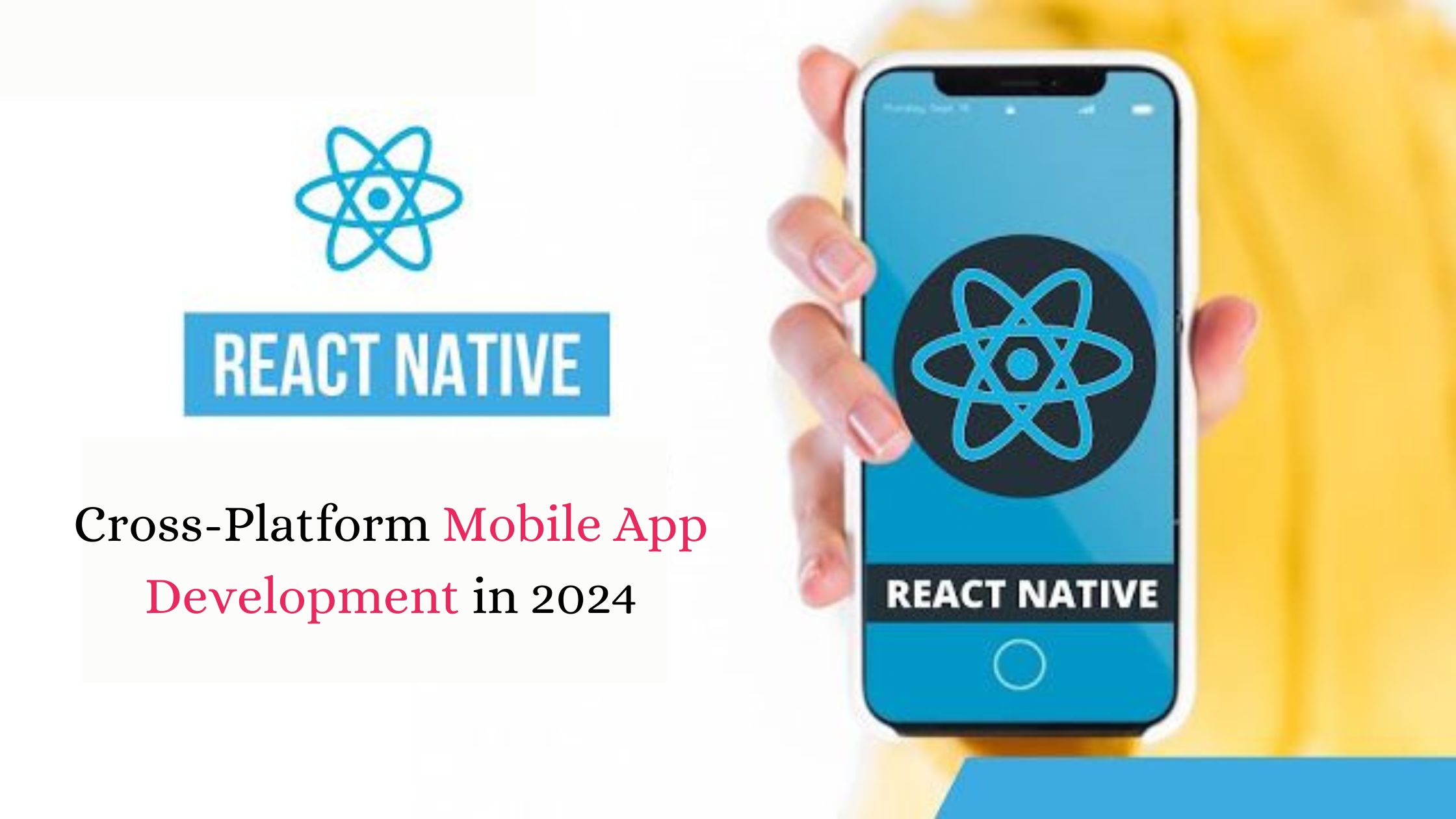In 2024, React Native is leading cross-platform mobile app development. It lets developers reuse code for both iOS and Android, ensuring a smooth native user experience.
This article delves into how developers harness React Native for native mobile development. It covers its streamlined coding process, vibrant community fostering innovation, and how it tackles contemporary development hurdles.
Key Takeaways
Cross-Platform Development Capabilities
React Native Development, React Native uses JavaScript for building mobile apps that work on multiple platforms. It lets developers reuse code, meaning they only need one code set for iOS and Android. This makes it easier to keep up with new device features and security updates.
Robust Ecosystem and Community Support
A strong community adds to the rich environment of React Native, offering plenty of shared solutions, libraries, and plugins that make the framework even better. It also gives developers a chance to contribute their ideas and get help when they need it.
Performance Optimization Features
To make React Native apps run faster, developers use tools like concurrent mode, Fast Refresh, and the Hermes JavaScript engine. These features help improve performance. React Native is popular with both big companies and startups because it's scalable and makes cross-platform development efficient.
Understanding React Native: The Basics
React Native plays a vital role in mobile app development. It uses React's simple UI design to make native iOS and Android apps with JavaScript, sticking to the standards for native apps.
Developers can create flexible mobile apps for various platforms without needing to learn new languages, thanks to React Native.
But it's not just about making things easier. React Native constantly improves. With each update, it adds important features and security improvements from iOS and Android, ensuring apps work smoothly on the latest devices.
What Sets React Native Apart?
React Native stands out by allowing developers to create mobile apps that work smoothly on different platforms using only one set of code. Its notable features include:
Single Codebase, Multiple Platforms:
React Native simplifies mobile app development for iOS and Android platforms by using one codebase, making both development and maintenance more efficient.
Reusable Components:
Developers find value in reusable components that maintain consistency in design and functionality throughout different sections of the application. This feature boosts productivity and encourages easier management of code.
Authentic Native Experience:
Even though React Native uses a single codebase, it maintains a genuine native app feel. This sets it apart from other cross-platform frameworks often use web view elements, leading to a less authentic experience.
The blend of code reusability and the capability to offer a truly native experience makes React Native a top choice for building cross-platform mobile apps efficiently.
Progressive Web App Support:
In addition to mobile apps, React Native supports the development of progressive web apps. This means developers can create web applications that feel like native apps, complete with features like offline functionality and push notifications.
Core Components of React Native
React Native depends on essential components fundamental for its functionality. These include universal native elements like View, Text, and Image, serving as the foundation for creating mobile interfaces. Here's the key information you should be aware of:
Foundational Elements
Community Additions
Design Freedom
React Native’s Ecosystem and Community
A vibrant community and a well-established ecosystem are vital for any open-source project, including React Native.
The strong backing from the community means developers have ample support and access to shared solutions when tackling challenges in mobile app development with React Native.
With nearly 50,000 active members on Stack Overflow and over 2,100 contributors on GitHub, the framework continues to evolve by addressing bugs and implementing enhancements.
This community extends beyond developers, hosting global events like React Miami 2023 and React Native EU conferences. These gatherings feature workshops and insights from industry experts, shedding light on the latest trends in mobile app development using React Native.
The collaboration between Meta's core team, responsible for developing React Native technology, and its diverse member base underscores its resilience and commitment to remaining an open-source platform.
Contributing to React Native
React Native encourages diverse forms of participation beyond coding. This includes engaging by commenting on issues and submitting pull requests.
Developers can enhance React Native by creating and sharing native modules and components on platforms like NPM and GitHub. The aim is to foster a vibrant community that embraces partners, core contributors, and all members.
For newcomers looking to contribute, detailed guidelines are available in the 'Contributing' section of the React Native website. Additionally, instant assistance from experienced React Native members is offered on the Reactiflux Discord server.
Libraries and Plugins
React Native offers a wide range of tools and extensions that can enhance the functionality of apps built on the platform. Here's what you should know:
Third-Party Libraries
TypeScript
ViroReact
Cross-Platform Development with React Native
React Native stands out for its support of cross-platform development, a feature that appeals to many developers.
Thanks to frequent updates, React Native stays in sync with the latest features and security fixes on iOS and Android.
Compared to other frameworks, development with React Native is quicker, potentially boosting user engagement and lowering app uninstall rates.
Its flexibility ensures apps work smoothly on all platforms without requiring separate versions, making it easier to maintain a consistent brand image across iOS and Android.
Platform-Specific Code
React Native's updated architecture now facilitates the integration of existing code from various platforms effortlessly. Developers can seamlessly include their native modules into React Native projects by utilizing platform-specific file extensions and improved support for CocoaPods on iOS.
The Platform module within React Native provides handy features for interacting with the operating systems of mobile platforms. It allows for the identification of the current running OS and its version.
Moreover, it supports conditional logic for writing specific code or styles based on the platform being used. Utilities such as Platform.OS, Platform.Version, and Platform. Select simplify effective work across these diverse environments.
Shared Logic Across Platforms
React Native's reusable components serve as crucial foundations, ensuring uniform functionality and interfaces for native apps across iOS and Android platforms.
With the ability to reuse up to 90% of the code, developers can optimize these components by separating business logic from presentational elements. This fosters sharing between React for web development and React Native for mobile app development while avoiding any references to platform-specific objects in shared models.
Building User Interfaces with React Native
Developing UIs with React Native is straightforward. This technology offers native code, offering several advantages like creating responsive interfaces that load swiftly, impacting user decisions on app usage.
React Native advocates for organizing project structures into logical modules, components, and screens to boost development efficiency.
The framework favors using functional components over class components for better readability, testability, and maintainability. This strategy guarantees scalability in projects focused on building user interfaces.
Design Principles
React Native's component-based structure enables developers to build self-contained components capable of managing their state efficiently.
This approach leads to the development of user interfaces that are intuitive and responsive. By adopting declarative programming principles, the code required for building these interfaces becomes simpler, facilitating easier debugging of any potential issues.
Performance Optimization in React Native Apps
In the realm of mobile apps, performance holds significant importance, and React Native provides developers with diverse strategies for enhancing it.
One notable method is Concurrent Mode, facilitating the efficient handling of multiple application tasks simultaneously, yielding smoother and more responsive applications.
Additionally, React Native has adopted the new Fabric architecture, which streamlines UI operations by utilizing only one thread. This implementation substantially boosts app performance across Android and iOS devices.
Optimizing Native Device Interactions
React Native equips developers with tools to enhance interactions within native apps. The Hermes JavaScript engine, known for its compact size and rapid start-up speed, notably enhances performance for React Native apps.
With its updated architecture, React Native facilitates more efficient communication between JavaScript and native components. This minimizes the need for serialization requirements and results in a smoother experience on native devices.
Success Stories: Apps Thriving with React Native
React Native has gained widespread adoption from both industry giants and startups alike, enabling the creation of highly successful applications.
A prominent contributor and adopter of this framework was Facebook, which utilized React Native for its Ads Manager app on both iOS and Android platforms. This early adoption showcased confidence in the capabilities of React Native.
Industry Giants Embracing React Native
Startups Leveraging React Native for Growth
The Future of React Native: Trends and Predictions
React Native holds immense promise in the future, particularly in integrating cutting-edge technologies like Artificial Intelligence, Augmented Reality (AR), and Virtual Reality.
These advancements complement the increasing demand for data-driven, personalized, and immersive applications.
Navigating Challenges in React Native Development
React Native, like any technology, presents its own set of unique challenges.
However, developers can overcome these challenges by utilizing tools such as Flipper, introduced in version 0.62. This tool assists in analyzing network requests and database conditions. Additionally, the React Native Debugger is valuable for inspecting the states of app components and their elements.
Overcoming Compatibility Issues
Strategies for Complex Projects
Switching to React Native: A Developer's Guide
Leveraging React Native can revolutionize the software development landscape. With JavaScript, a widely adopted and familiar programming language among engineers, developers can effortlessly build mobile applications.
Preparing the Development Environment
Learning Resources and Community Support
Best Practices for React Native App Deployment
When deploying a React Native app, following recommended practices is crucial.
This includes optimizing the native app for different platforms, considering the variations in design guidelines and user interface components between Android and iOS. By adhering to these guidelines, native apps will be better tailored to the preferences of their respective platform's users.
Testing on Multiple Devices
Navigating the App Store Approval Process
Performance Optimization
Security Measures
Monitoring and Analytics
Continuous Integration and Deployment
User Feedback and Iteration
React Native stands out as a versatile and resilient framework, significantly transforming the landscape of mobile app development. Its potent features have made it an indispensable tool for constructing cutting-edge applications. For more information, contact us now!




Comments (0)